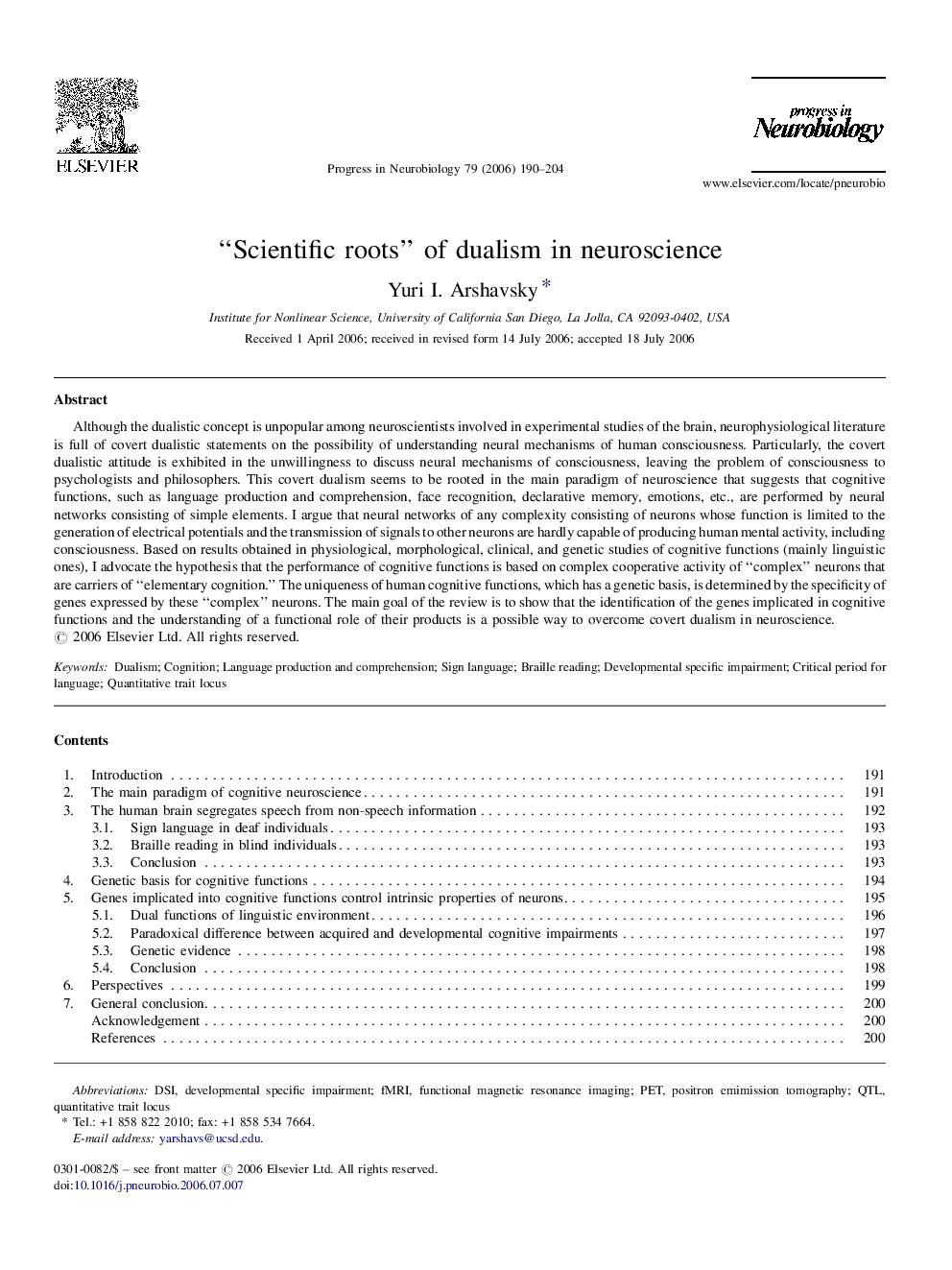| Article ID | Journal | Published Year | Pages | File Type |
|---|---|---|---|---|
| 4353974 | Progress in Neurobiology | 2006 | 15 Pages |
Although the dualistic concept is unpopular among neuroscientists involved in experimental studies of the brain, neurophysiological literature is full of covert dualistic statements on the possibility of understanding neural mechanisms of human consciousness. Particularly, the covert dualistic attitude is exhibited in the unwillingness to discuss neural mechanisms of consciousness, leaving the problem of consciousness to psychologists and philosophers. This covert dualism seems to be rooted in the main paradigm of neuroscience that suggests that cognitive functions, such as language production and comprehension, face recognition, declarative memory, emotions, etc., are performed by neural networks consisting of simple elements. I argue that neural networks of any complexity consisting of neurons whose function is limited to the generation of electrical potentials and the transmission of signals to other neurons are hardly capable of producing human mental activity, including consciousness. Based on results obtained in physiological, morphological, clinical, and genetic studies of cognitive functions (mainly linguistic ones), I advocate the hypothesis that the performance of cognitive functions is based on complex cooperative activity of “complex” neurons that are carriers of “elementary cognition.” The uniqueness of human cognitive functions, which has a genetic basis, is determined by the specificity of genes expressed by these “complex” neurons. The main goal of the review is to show that the identification of the genes implicated in cognitive functions and the understanding of a functional role of their products is a possible way to overcome covert dualism in neuroscience.
